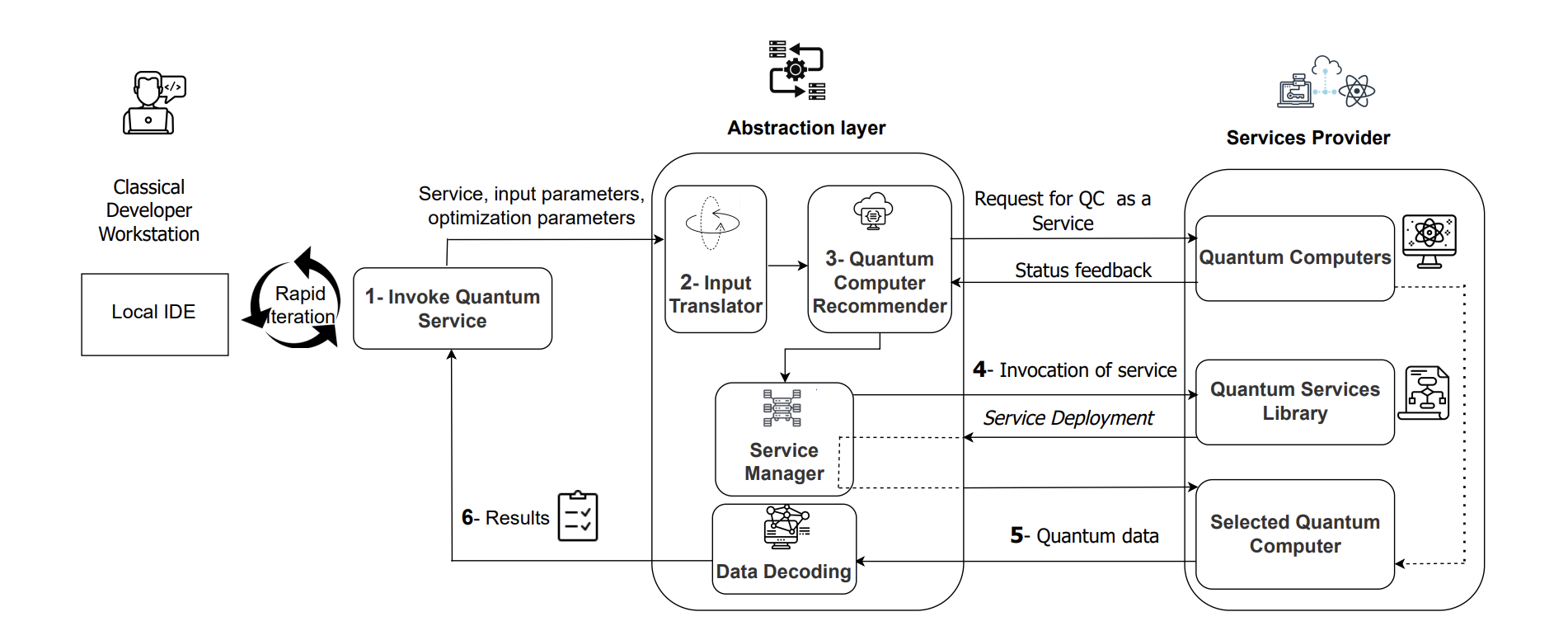Quantum Computing (QC) is a rapidly evolving field with the potential to revolutionize industries such as cybersecurity, financial services, healthcare, and aerospace. Tech giants like IBM, Google, and Microsoft, along with the European Union, are investing heavily in QC. However, the development of QC applications remains a challenge due to limited resources and a lack of domain knowledge. To address these issues, a framework called Quantum Computing as a Service for Hybrid Classical-Quantum Software Development (QCSHQD) has been introduced. This framework aims to democratize access to QC resources for classical developers and fully leverage the potential of QC technologies.
What is Quantum Computing, and Why is it Important?
Quantum Computing (QC) is a rapidly evolving field that is transitioning from theoretical frameworks to an indispensable powerhouse of computational capability. This technology is being adopted across both industrial and academic domains due to its exceptional advantages, including unparalleled processing speed and the potential to solve complex problems beyond the capabilities of classical computers.
QC is receiving growing interest from technology giants such as IBM, Google, and Microsoft, who have heavily invested in and committed to this technology. Moreover, the European Union has invested an expected budget of one billion euros over ten years in an initiative known as the European Quantum Technologies Flagship, aiming to position Europe as a significant player in the quantum revolution. This interest from tech giants and governments has empowered QC and paved the way for business development in various areas such as cybersecurity, financial services, healthcare, and aerospace.
However, the development of QC applications in a systematic, anticipated, and cost-effective way is critically challenging and remains an unsolved problem. There is a need for advanced approaches to tackle this problem to enable QC to live up to its promising potential.
What are the Challenges in Quantum Computing?
Despite the potential benefits of QC, academic researchers and industry practitioners encounter various challenges in harnessing the benefits of this technology. The limited accessibility of QC resources for classical developers and a general lack of domain knowledge and expertise represent insurmountable barriers.
Like classical computing systems, there is a need for quantum software systems and applications that can exploit the benefits of quantum information processing by operationalizing quantum computers. This need is explicitly highlighted in a national agenda for software engineering research and development presented by the Software Engineering Institute at Carnegie Mellon University.
A key challenge is to fully integrate these types of systems into a unified classical and quantum software development life cycle. Ensuring robust support for software components is crucial for harnessing the comprehensive capabilities of QC. Therefore, the seamless integration of quantum hardware and software emerges as an essential requirement for fully leveraging the potential of QC technologies.
What is the Proposed Solution to these Challenges?
To address these challenges, a framework called Quantum Computing as a Service for Hybrid Classical-Quantum Software Development (QCSHQD) is introduced. This framework leverages service-oriented strategies and comprises three principal components: an Integrated Development Environment (IDE) for user interaction, an abstraction layer dedicated to orchestrating quantum services, and a service provider responsible for executing services on a quantum computer.
The vision of QCSHQD is to democratize access to QC resources for classical developers who want to seamlessly harness QC power. This framework aims to bridge the gap between classical developers and QC resources by exploiting service-oriented computing strategies.
How Does Quantum Computing Work?
The word “quantum” in quantum computing indicates the quantum mechanics that a system utilizes to run computationally intensive operations. In Physics, quantum is the smallest unit of any physical entity and generally refers to atomic or subatomic particles such as electrons, neutrons, and photons. QC leverages the principles of quantum mechanics to process information and perform specific computational tasks much faster than conventional computer systems and allows practitioners and researchers to probe many possibilities simultaneously.
The key difference between classical and quantum computers is the qubit. Unlike classical computer exclusive bits (0/1), qubits can be in a state that is a superposition of 0 and 1. This superposition allows for the representation of qubits as a linear combination of two basis states (0 and 1). Consequently, any qubit can be represented as 𝑥0𝑦1, where x and y are complex numbers that adhere to the normalization condition 𝑥2𝑦21. This condition ensures that the probability of finding the qubit in either state upon measurement is one.
What is the Future of Quantum Computing?
The future of quantum computing looks promising, with the development of the QCSHQD framework paving the way for groundbreaking innovations. By addressing key challenges of hybridization between classical and quantum computers, this framework aims to democratize access to QC resources for classical developers.
As QC transitions from theoretical frameworks to an indispensable powerhouse of computational capability, it is expected to result in extensive adoption across both industrial and academic domains. With the continued investment and commitment from tech giants and governments, QC is set to revolutionize various sectors, including cybersecurity, financial services, healthcare, and aerospace.
However, the development of QC applications in a systematic, anticipated, and cost-effective way remains a challenge. Therefore, the need for advanced solutions like the QCSHQD framework is essential to enable QC to reach its full potential. With the continued research and development in this field, the future of quantum computing looks bright.
Publication details: “QCSHQD: Quantum computing as a service for Hybrid classical-quantum
software development: A Vision”
Publication Date: 2024-03-13
Authors: Arif Ali Khan, Maryam Tavassoli Sabzevari, Davide Taibi, Matteo Esposito, et al.
Source: arXiv (Cornell University)
DOI: https://doi.org/10.48550/arxiv.2403.08663

